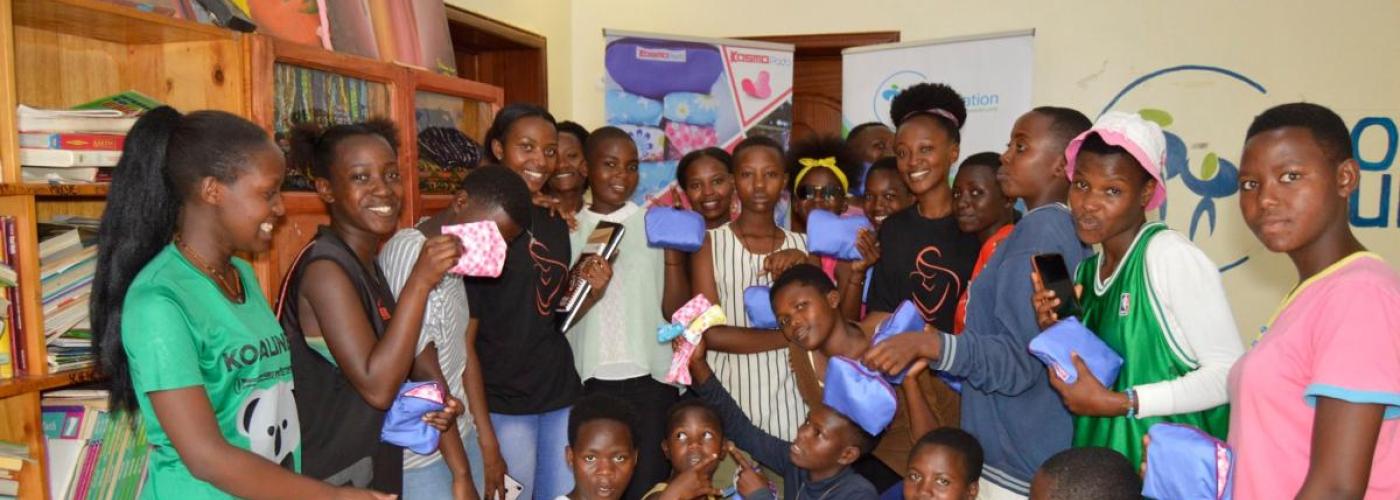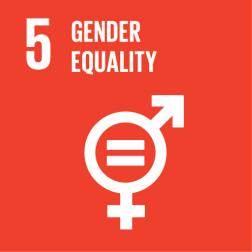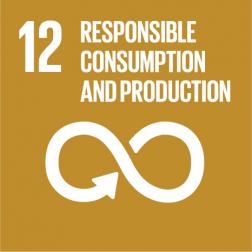Because by using unhygienic sanitary pads such as rags, women can contract infections. Staying away from school or work for a few days every month puts them at a disadvantage. And shame about a normal biological process can have psychological effects, too.
Comfortable KosmoPads
Such 'period poverty' is clearly an underestimated problem that deserves much greater attention. In sub-Saharan Africa, it keeps 1 in 10 girls away from school. And in a country like Rwanda, as many as 18% of girls and women have to stay away from school or work because they cannot afford sanitary pads. This leads to an annual loss of GDP of $215 per woman.
Gender equality is an absolute priority for Belgium. That is why our country supports the Rwandan company Kosmotive to eradicate this problem. To this end, it has developed reusable, eco-friendly sanitary pads called KosmoPads. Breathable KosmoPads are comfortable to wear, super absorbent and relatively inexpensive as they last for 2 years.
After those 2 years, they are collected and recycled. A huge advantage compared to the usual disposable sanitary pads that often contain chemicals and pollute the environment (beaches etc.) even more than plastic bags. Moreover, Kosmotive will get its energy from solar panels.

Over 1.6 million underprivileged girls
To begin with, Kosmotive plans to recruit 100 women to produce 1,632,480 KosmoPads by the end of 2023. These will be circulated through NGOs and companies, and directly to customers. The figure of over 1.6 million was not chosen by chance. After all, it corresponds to the number of underprivileged girls in Rwanda who cannot buy sanitary pads. Although the company is also targeting affluent women who might prefer the ecological KosmoPads to disposable pads to save the planet as well as their wallets.
Kosmotive also wants to link a media and community campaign to it to remove the taboo around menstruation. All too often menstruating women are still excluded from certain activities. The menstrual cycle should in fact become a vital marker of health. Instead of being shameful, periods should become a source of pride and strength. Boys must also be allies in this.
In less than 10 years, the company aims to expand its initiative to all of Rwanda, Africa and even the world. KosmoPads contribute significantly to various Sustainable Development Goals (SDGs). Especially SDG3 (health and well-being), SDG4 (decent education), SDG5 (gender equality), SDG8 (decent work and economic growth) and SDG12 (responsible consumption and production).
The Belgian contribution of €200,000 was granted under the Business Partnership Facility (see box).
Business Partnership Facility
The Business Partnership Facility (BPF) is an initiative of the Belgian Development Co-operation to support companies in developing countries that contribute to the Sustainable Development Goals (SDGs).
Supported projects are all economically viable business initiatives with a clear social and/or environmental impact such as job creation, increasing the incomes of underprivileged people, protecting the environment and so on.
The BPF is administered by the King Baudouin Foundation. In the meantime, you can check out the numerous supported initiatives on the BPF website.
The BPF has €12 million at its disposal for the period from 2019 to the end of 2023. Projects will receive between €50,000 and €200,000, for up to 50% of the investment.




